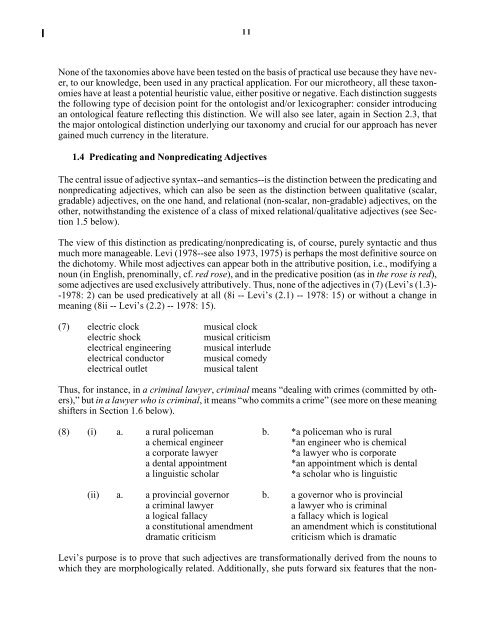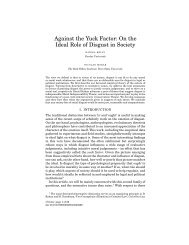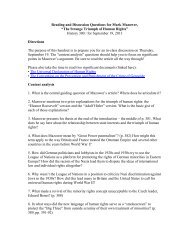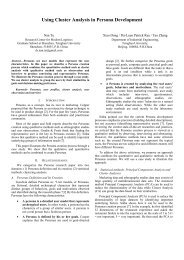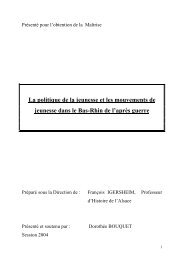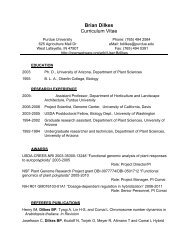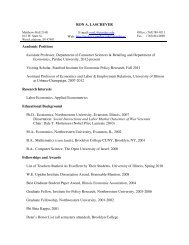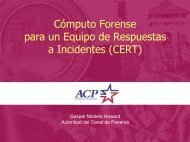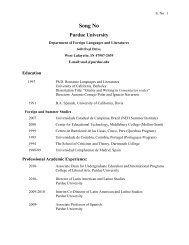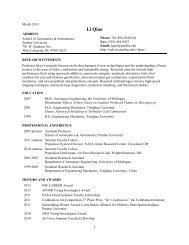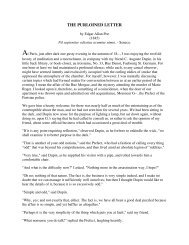Lexical Semantics of Adjectives - CiteSeerX
Lexical Semantics of Adjectives - CiteSeerX
Lexical Semantics of Adjectives - CiteSeerX
Create successful ePaper yourself
Turn your PDF publications into a flip-book with our unique Google optimized e-Paper software.
11<br />
None <strong>of</strong> the taxonomies above have been tested on the basis <strong>of</strong> practical use because they have never,<br />
to our knowledge, been used in any practical application. For our microtheory, all these taxonomies<br />
have at least a potential heuristic value, either positive or negative. Each distinction suggests<br />
the following type <strong>of</strong> decision point for the ontologist and/or lexicographer: consider introducing<br />
an ontological feature reflecting this distinction. We will also see later, again in Section 2.3, that<br />
the major ontological distinction underlying our taxonomy and crucial for our approach has never<br />
gained much currency in the literature.<br />
1.4 Predicating and Nonpredicating <strong>Adjectives</strong><br />
The central issue <strong>of</strong> adjective syntax--and semantics--is the distinction between the predicating and<br />
nonpredicating adjectives, which can also be seen as the distinction between qualitative (scalar,<br />
gradable) adjectives, on the one hand, and relational (non-scalar, non-gradable) adjectives, on the<br />
other, notwithstanding the existence <strong>of</strong> a class <strong>of</strong> mixed relational/qualitative adjectives (see Section<br />
1.5 below).<br />
The view <strong>of</strong> this distinction as predicating/nonpredicating is, <strong>of</strong> course, purely syntactic and thus<br />
much more manageable. Levi (1978--see also 1973, 1975) is perhaps the most definitive source on<br />
the dichotomy. While most adjectives can appear both in the attributive position, i.e., modifying a<br />
noun (in English, prenominally, cf. red rose), and in the predicative position (as in the rose is red),<br />
some adjectives are used exclusively attributively. Thus, none <strong>of</strong> the adjectives in (7) (Levi’s (1.3)-<br />
-1978: 2) can be used predicatively at all (8i -- Levi’s (2.1) -- 1978: 15) or without a change in<br />
meaning (8ii -- Levi’s (2.2) -- 1978: 15).<br />
(7) electric clock musical clock<br />
electric shock musical criticism<br />
electrical engineering musical interlude<br />
electrical conductor musical comedy<br />
electrical outlet musical talent<br />
Thus, for instance, in a criminal lawyer, criminal means “dealing with crimes (committed by others),”<br />
but in a lawyer who is criminal, it means “who commits a crime” (see more on these meaning<br />
shifters in Section 1.6 below).<br />
(8) (i) a. a rural policeman b. *a policeman who is rural<br />
a chemical engineer *an engineer who is chemical<br />
a corporate lawyer *a lawyer who is corporate<br />
a dental appointment *an appointment which is dental<br />
a linguistic scholar *a scholar who is linguistic<br />
(ii) a. a provincial governor b. a governor who is provincial<br />
a criminal lawyer a lawyer who is criminal<br />
a logical fallacy a fallacy which is logical<br />
a constitutional amendment an amendment which is constitutional<br />
dramatic criticism criticism which is dramatic<br />
Levi’s purpose is to prove that such adjectives are transformationally derived from the nouns to<br />
which they are morphologically related. Additionally, she puts forward six features that the non-


